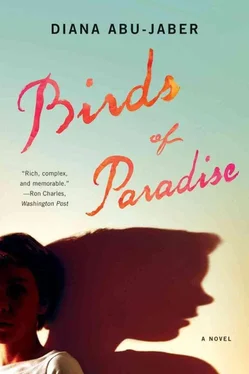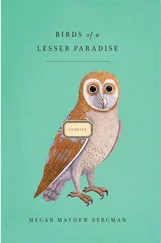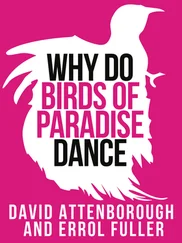HOW TO WRITE ABOUT A BAKER
By Diana Abu-Jaber
First published in Gilt Taste . Reprinted with permission.
In our family of mostly-women, baking was the feminine form. There was usually something magnificent under the heavy glass cover on the porcelain stand, some pastry displayed like a Tiffany’s necklace. We baked for the sugar, but for more than that: for the communal pleasure of working together, for baking’s equal parts chemistry and alchemy, for the physical beauty of the baked thing.
And yet, even after years of food writing, I’d not once addressed the private, ecstatic rites of baking. I’m not sure why that was, but I suspect I might have dismissed it — as if I’d decided baking wasn’t quite special enough. It had always seemed so familiar and intimate, even in some sense, private — which perhaps made it seem dull.
My grandmother, an early, furious, proto-feminist, held that “women’s work” was lesser stuff, far beneath her daughter and certainly not for her granddaughters. It was important to her, in fact, that we never learn the tasks that she was raised to do, like ironing, sweeping, or typing, that we never be, in any way, associated with such menial labor. Baking, with its quaint sentimental quality, had a special category, however: it was a form of guilty pleasure.
Not despised, but not to be taken seriously. Further, she had given me to understand that even in the professional world, men were cooks, like my father, and women were relegated to the pastry work — a backseat occupation with lower wages and less fanfare — in second place, always trailing the main course.
One day I began writing a novel set in Miami. The main character was a woman named Avis and the crux of this story, as I imagined it, was that her daughter had run away and that it had driven her slightly insane. I felt I understood Avis’s solitude and angst, her struggle to feel like a part of an unwelcoming community. But on reading the early draft, I could see that Avis lacked a sort of direction, intention. This listless character needed some vital spark — the sharp hook on which to hang a novel. I could make her a pastry chef, it occurred to me, but I recoiled from the idea almost immediately.
I was writing about the restaurant world for the Portland Oregonian in the late 90s and early 00s. Every week, restaurants
shimmered in and out of existence like fireflies. During this time, there was an intriguing bit of gossip involving a pastry chef.
Formerly head pastry chef at Alain Ducasse in New York, he’d been lured to Portland to elevate the desserts at one of the city’s best restaurants. His work was reputedly stunning, Babylonian: ziggurats of sugar and cream, temples, pyramids, erupting volcanoes and cooling streams. The paper had asked me to write a profile on him and his work, but when I went to the restaurant, he was already gone. Apparently, this mercurial genius, this Daedelus, had lasted all of six weeks before the head chef had shown him the door.
“It was merely time for a parting of the ways. An artistic difference,” Chef purred in his French accent. “He’s extremely talented and he’d learned all we could teach him.” But when I put down my notebook, Chef slapped the top of his head. “He’s like all pastry-chefs, totally fucking insane! He wants to take over the whole kitchen! He screams at all my line chefs and throws pans at the waiters! He will use only hand-churned butter! He buys maroon saffron threads from Kashmir — for one mousse! And he was ordering gold leaf from Austria to sprinkle over his puddings. Actual gold leaf . Do you know what that costs?”
Ah, but I loved the idea of such egregious behavior in the name of dessert. It seemed wonderful to me that someone would damn practicality, to demand baking be given its due, to assert the sweet could be just as vital as the savory.
The following day, I sought out this gold leaf baker. He’d already taken a job at an expensive “atmospheric” high rise restaurant where the kitchen staff seemed to scuttle around and stare at him from behind corners. All suave, feline charm, he came to my table dressed in his white jacket and baggy pants and tilted his head as if we were on a date. His pastries,
which a series of cowed wait staff ferried out, were architectural
marvels — paved slabs of chocolate and shards of nuts, cakes with doors and hinges: they were indeed glorious.
But was it all a little much? It struck me in the moment as almost egotistical, to spend this much time and effort on dessert, making something too beautiful to eat. I noticed tucked among the gorgeous pastries, a single ripe pomegranate: it was nestled in a bed of green grass made of spun sugar. I was struck by the ingenuity of setting off the pastries with a bit of fruit — a nod to the un-improvable beauty of nature. A spark of modesty that redeemed the chef in my mind. He plucked up the fruit; using a sharp little knife, he cut into it, revealing rows of glistening ruby seeds. I realized it hadn’t torn apart like a pomegranate would but broke into shards: its red sheath was actually a berry-tinted chocolate. While the interior seeds were actual pomegranate seeds, they’d been painstakingly embedded by hand into an inner membrane of white chocolate. I looked into the chef’s hooded black eyes and thought: Hello, Colonel Kurtz.
He leaned across the table. “That French idiot — he is totally insane.” His eyes were over-bright, his hands flat on the table. “He thinks that his cooking— his meat —is what’s important? I feel sorry for him. I feel pity. He doesn’t know that everyone is waiting for dessert?”
I thought about this sharp, hot energy years later when I began to rethink my character. I wanted her to have the same sort of nature, with that blend of male and female, ambition and comfort. Still, I tried to imagine all sorts of other pursuits for her: teacher, nurse, illustrator, tour guide: nothing fit. There seemed to be an obvious solution and yet I avoided it.
Perhaps the problem wasn’t simply about gender bias or status symbols but my own familiarity with the subject. I became a writer out of a state of crisis: as a child, I was drowned out by my loud relatives. My family was too insistent, too restrictive, too traditional: the spoken truth was dangerous. But if I wrote things down, I could take risks, just about get to the truth of things, my own truth. Writing gave me a sense of creativity, openness, and audacity — which meant everything to me. I had a dread of telling the same stories over and over — worse, of being expected to tell the same sort of story. I’d already written a novel about a chef in a Lebanese restaurant and a memoir filled with family recipes. How could I write about a baker and not repeat myself? I feared the story couldn’t possibly stay rough and strange and new enough. It seemed inevitable that those deep planes of discovery and emotional risk would be smoothed away, polished by repetition into familiar old ideas. And so few American novelists seem to lavish much attention on eating and cooking in their stories — perhaps there was something inherently limited about such a basic human function. Just how far could I get with a baker?
An editor told me: It isn’t necessary to reinvent the wheel with each new book.
I found this thought both reassuring and terrifying.
My new novel was about parents and children: as I revised I started to think about the way children teach themselves the things their parents fail to give them. I knew several women with unstable, unavailable mothers, and these daughters had become wonderful cooks, as if to supply themselves with the essential nutrients for living. Was the corollary true, I wondered — if you grew up with an unstable father were you drawn to baking? It seemed to be true in my own family, with its several generations of erratic fathers and daughters who loved to bake. I considered: so much of baking is a meditation: resting, rising, measuring. In the absence of a steady, trustworthy breadwinner, do children learn to make their own bread?
Читать дальше












